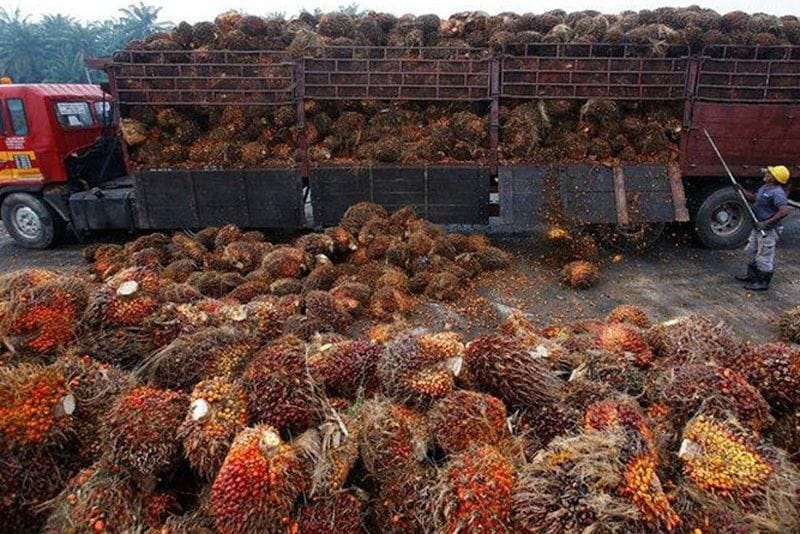
Table of Contents
Introduction: The Balance Between Nature & Industry
Palawan, often called the “Last Ecological Frontier of the Philippines”, is famous for its pristine beaches, crystal-clear waters, and lush rainforests. However, behind this natural beauty lies an ongoing debate about palm oil in Palawan production and its impact on the environment.
While palm oil is a major agricultural product in Southeast Asia, concerns over deforestation, biodiversity loss, and sustainability have led to efforts to balance economic growth with environmental conservation.
For travelers on the Coron to El Nido tour, Palawan offers a firsthand look at the challenges and solutions surrounding palm oil, from eco-tourism efforts to sustainable agriculture practices.
In this article, we’ll explore:
✔ What palm oil is and its role in Palawan
✔ The environmental concerns and sustainability efforts
✔ How palm oil production connects to tourism and conservation
✔ Where you can experience sustainable initiatives on the Coron to El Nido tour
Let’s dive into this important topic and adventure! 🌿🌍
What Is Palm Oil & Why Is It Important?
Palm oil is a versatile and widely used vegetable oil, found in:
✔ Food products (chocolates, snacks, instant noodles)
✔ Cosmetics (soaps, shampoos, skincare products)
✔ Biofuels (renewable energy sources)
1. Palm Oil in Palawan: Agriculture & Economy
✔ Palm plantations were introduced to boost local livelihoods
✔ The industry provides jobs for farmers and rural communities
✔ However, concerns over deforestation and land conversion have led to environmental challenges
📍 Where It’s Grown: Southern Palawan, where plantations have expanded over the past decade.
The Environmental Impact of Palm Oil in Palawan
1. Deforestation & Loss of Biodiversity
✔ Large-scale palm plantations have replaced forests, reducing wildlife habitats
✔ Endangered species like the Palawan hornbill and pangolin are affected
✔ Conservationists emphasize the importance of maintaining protected areas
2. Climate Change & Soil Degradation
✔ Land clearing releases carbon emissions, contributing to global warming
✔ Intensive farming depletes soil nutrients, making land less fertile over time
✔ Sustainable farming techniques aim to reduce environmental damage
3. Water Pollution & Marine Ecosystems
✔ Runoff from plantations can affect rivers, lakes, and coastal waters
✔ Increased sedimentation harms coral reefs, fish populations, and diving sites
✔ Eco-tourism operators promote better waste management practices
📍 Where It’s Seen: Areas in southern Palawan near Rio Tuba and Brooke’s Point.
Sustainable Palm Oil: A New Approach in Palawan
1. Certified Sustainable Palm Oil (CSPO)
✔ Encourages environmentally responsible farming methods
✔ Requires no deforestation, fair labor conditions, and reduced carbon footprint
✔ Some plantations in Palawan are adopting these eco-friendly practices
2. Agroforestry & Reforestation Projects
✔ Planting native trees alongside palm trees helps restore biodiversity
✔ Some farms use mixed cropping to reduce dependence on palm monoculture
✔ Community-led initiatives focus on reforesting degraded lands
3. Local & International Conservation Efforts
✔ NGOs like Haribon Foundation & WWF-Philippines work on conservation projects
✔ Ecotourism groups collaborate to protect Palawan’s forests
✔ Government regulations promote responsible land use
📍 Where to Learn More: Conservation centers and eco-lodges near El Nido & Coron.
Experiencing Sustainability on the Coron to El Nido Tour
Despite the palm oil industry’s challenges, Palawan remains one of the most ecologically diverse places in the world. Through the Coron to El Nido tour, travelers can see how conservation and sustainable tourism are shaping the island’s future.
Day 1: Coron – Exploring Marine & Forest Conservation
✔ Snorkel in pristine coral reefs, learning about marine protection efforts
✔ Visit local villages that support sustainable farming and eco-tourism
✔ Enjoy meals prepared with locally sourced ingredients, free from unsustainable palm oil
Day 2: Linapacan – Discovering Natural Beauty & Sustainable Farming
✔ Explore hidden beaches and islands untouched by mass tourism
✔ Learn about organic farming practices used by local communities
✔ Experience tree-planting initiatives in forest restoration projects
Day 3: El Nido – Sustainable Tourism in Action
✔ Stay in eco-resorts that avoid unsustainable palm oil products
✔ Visit conservation projects supporting wildlife and local biodiversity
✔ Kayak through mangrove forests that act as natural carbon sinks
📍 Why It’s Special: This tour offers a balanced perspective, allowing visitors to see both the beauty of Palawan and the importance of conservation efforts.
How Tourists Can Support Sustainability in Palawan
1. Choose Eco-Friendly Tour Operators
✔ Book tours that promote sustainability & support conservation projects
✔ Look for accommodations that use eco-friendly and palm oil-free products
✔ Support local businesses and farms that practice responsible agriculture
2. Reduce Palm Oil Consumption
✔ Check product labels for sustainably sourced palm oil (RSPO certified)
✔ Avoid buying products linked to deforestation
✔ Choose handmade, locally sourced souvenirs over mass-produced goods
3. Spread Awareness & Responsible Travel Practices
✔ Educate yourself and others about the impact of palm oil on biodiversity
✔ Participate in eco-tourism activities like reef cleanups & tree-planting
✔ Respect local cultures and environmental regulations
📍 Where to Get Involved: Many eco-resorts in El Nido and Coron offer conservation volunteer opportunities.
Conclusion: Protecting Paradise While Exploring It
The palm oil industry in Palawan presents both economic opportunities and environmental challenges. While plantations have helped local communities, they also impact forests, wildlife, and marine ecosystems.
Through sustainable tourism, conservation projects, and responsible consumer choices, both locals and travelers can help preserve the beauty of Palawan for future generations.
🌿 Ready to explore Palawan responsibly? Book your Coron to El Nido tour today and discover the balance between nature and sustainability! 🌍✨

